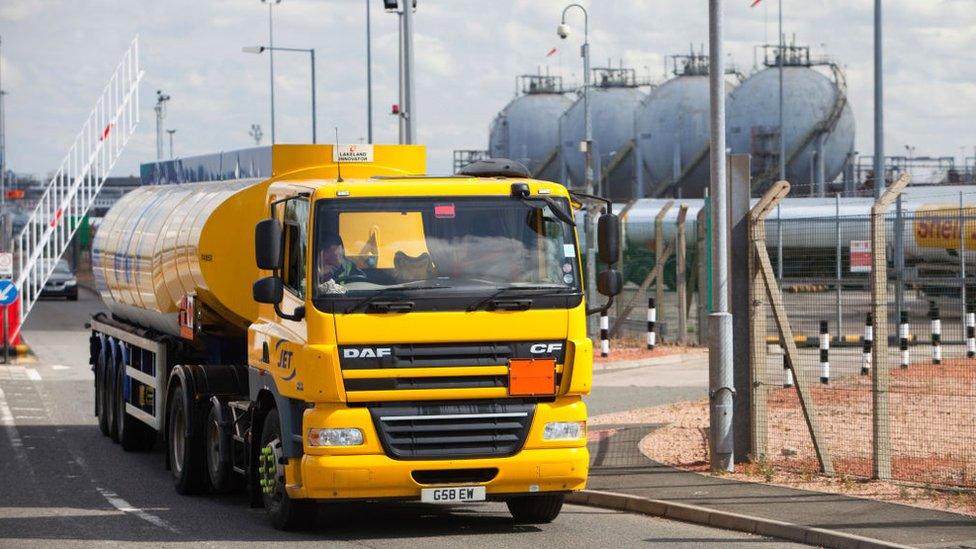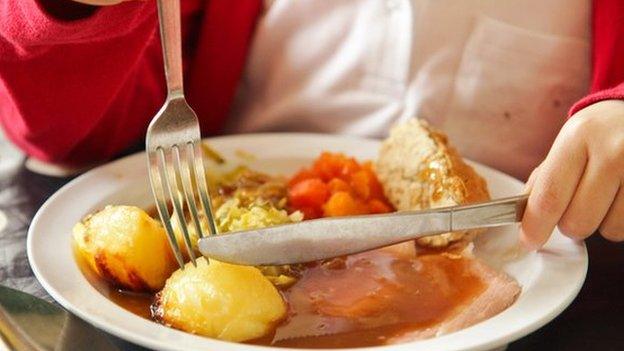Government to review tariff plan for fuel imports
- Published

The UK government is reviewing plans to remove tariffs on a wide range of imports post-Brexit, following warnings that it would undermine the country's oil refining industry.
A local authority document seen by the BBC, suggests competition from untaxed imports could put some UK refineries out of business.
The minister for no-deal planning, Michael Gove, said the government would publish new tariff plans shortly.
Refineries add £8.6bn to the economy.
That is generated by six major petrol and diesel plants, which employ 120,000 people.
In response to concerns that those sites could become "uneconomical" under current no-deal plans, Mr Gove told BBC Wales the government was rethinking those proposals.
"The tariff schedule was prepared under the old government of Theresa May, we now have a new Prime Minister and it is being reviewed and will be published shortly in its full form," Mr Gove said.
However, he warned that the tax plans, which UK oil producers say would leave them at a competitive disadvantage, may remain unchanged.
"I don't want to give anyone the impression that any particular tariff line is going to change… but we will have a new publication of all our tariff lines shortly," he said.
Oil refineries turn crude oil into petrol and diesel as well as products such as jet fuel.
The concern, which is shared by both the Scottish and Welsh governments, relates to the UK government's decision not to apply tariffs - taxes on trade - to imports of petrol in the event of a no-deal Brexit.
The decision was made to lessen the inflationary impact on prices in the event of a no-deal Brexit.
Dependent
The current tariff on fuel imports from non-EU countries is 4.7%.
Under World Trade Organization (WTO) rules, if the UK applies a zero tariff rate to imports from one country's petrol, it must do the same for products from all countries.
Critics argue that could undermine the UK's domestic industry and leave the country dependent on imports from producers such as Russia.
At the same time, the EU has said it will apply a tariff, under WTO rules, of 4.7% on the UK's fuel exports, making them less competitive, for example in Ireland.
But the government has previously said that reversing its no-deal zero import tariff plan would lead to higher prices for consumers.
- Published19 August 2019

- Published20 August 2019
- Published11 October 2019
